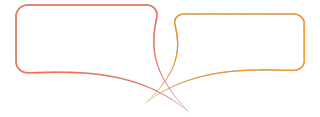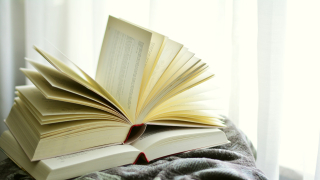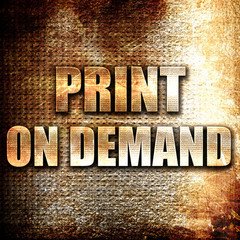Rob Bignell's Blog, page 237
September 28, 2017
When and how do I get my royalties?
After countless  hours of writing and revising, wringing your hands over the cover design, and struggling with formatting glitches, you���ve finally done ��� you���ve self-published your book! You���re euphoric, but one nagging question remains: When and how do I get my royalties?
hours of writing and revising, wringing your hands over the cover design, and struggling with formatting glitches, you���ve finally done ��� you���ve self-published your book! You���re euphoric, but one nagging question remains: When and how do I get my royalties?
Technically, most self-published authors don���t receive royalties. Royalties are a publisher���s payment made to an author. Since you���re self-publishing, you���re probably the publisher. Because of this, some print on demand companies don���t pay ���royalties��� to their authors but use several other terms, like profit or revenue.
Of course, you���re the author, so what���s the difference, really? Royalties is simply one of those words whose definition is morphing to keep with modern realities. And it really doesn���t change the question: When and how do I get my money?
As with most corporate publishers, royalties from print on demand publishing are on a per-sale basis. Both royalties largely depend on a percentage of the retail cost. If the book sells for $10, and you receive 10 percent for royalties, then you earn a dollar for every book sold. Sell 100 books, and you���ve made a hundred bucks.
A major difference is authors with corporate publishers typically receive an advance against future sales. So once the author delivers the book to the publisher, the latter cuts the former a check. The author won���t receive any royalties, however, until total sales surpass the amount of the royalties check. So if the author receives a dollar for every book sold, and the advance is for $10,000, book sales will have to top 10,000 before royalties are received. Self-publishing, in contrast, offers no advance, and you are paid out your share of the book sales usually within 30-90 days.
In self-publishing, the amount you earn per book sale usually varies based on the retail price. Kindle Direct Publishing, for example, requires that an ebook be priced at a certain level (as of this writing, $2.99) to receive 70% of each sale; ebooks falling below that price can only receive 35% of each sale. The length of the book, the paper quality, whether or not color is used, and other factors also can affect the price, depending on which format (paperback, ebook, audiobook) you publish.
Without question, self-publishing gives you a higher return for royalties than corporate publishing. The challenge for self-publishing authors is to obtain the sales that would equal the corporate publisher���s advance. Almost all authors, even those who���ve published a couple of books, will have to promote their own titles, however, so self-publishing often is the smarter route to go.
Professional Book Editor: Having your novel, short story or nonfiction manuscript proofread or edited before submitting it can prove invaluable. In an economic climate where you face heavy competition, your writing needs a second eye to give you the edge. I can provide that second eye.
<A HREF=���http://ws-na.amazon-adsystem.com/widg... Widgets</A>
Related articles
 Five Great Quotations about the Writing Process
Five Great Quotations about the Writing Process Make tables readable in your self-published book
Make tables readable in your self-published book Words of Encouragement for Writers - Inventing Reality Editing Service
Words of Encouragement for Writers - Inventing Reality Editing Service 5 Tips to Encourage and Motivate Writers - Inventing Reality Editing Service
5 Tips to Encourage and Motivate Writers - Inventing Reality Editing Service Writing Inspiration: Seek another's advice
Writing Inspiration: Seek another's advice
September 27, 2017
12 Tips for Creating a Compelling Plot

��� Five basic elements make up a story
��� Don't let a rhinoceros in the room smash your plot
��� Use bait-and-switch device carefully in stories
��� Cut plot clich�� of histrionic exit
��� Utilize Chekhov's gun to make plot work
��� Delete bogus alternatives from your story
��� Avoid stalling as approaching crucial event
��� What is a ���blood and guts��� scene?
��� Use foreshadowing to enrich your story
��� Avoid writing gimmick stories
��� Utilize plot device to move story forward
��� Strengthen story with man vs. himself conflict
��� BONUS: ���The first chapter sells the book; the last chapter sells the next book.��� - Mickey Spillane
Professional Book Editor: Having your novel, short story or nonfiction manuscript proofread or edited before submitting it can prove invaluable. In an economic climate where you face heavy competition, your writing needs a second eye to give you the edge. I can provide that second eye.
<A HREF=���http://ws-na.amazon-adsystem.com/widg... Widgets</A>
Related articles
 Five Great Quotations about the Writing Process
Five Great Quotations about the Writing Process Four writing prompts: Doubt
Four writing prompts: Doubt Four writing prompts: Race - Inventing Reality Editing Service
Four writing prompts: Race - Inventing Reality Editing Service Four writing prompts: Innocence lost - Inventing Reality Editing Service
Four writing prompts: Innocence lost - Inventing Reality Editing Service Four writing prompts: Sanity - Inventing Reality Editing Service
Four writing prompts: Sanity - Inventing Reality Editing Service
7 Sets of Commonly Confused Words

��� Amity vs enmity
��� Cleanup vs. clean up vs. clean-up
��� Disdain vs. distain
��� Everyone���s vs. everyones��� vs. everyones
��� Loath vs. loathe
��� Pled vs. plead vs. pleaded
��� Sound bite vs. sound byte
Professional Book Editor: Having your novel, short story or nonfiction manuscript proofread or edited before submitting it can prove invaluable. In an economic climate where you face heavy competition, your writing needs a second eye to give you the edge. I can provide that second eye.
<A HREF=���http://ws-na.amazon-adsystem.com/widg... Widgets</A>
Related articles
 Five Great Quotations about the Writing Process
Five Great Quotations about the Writing Process Writing Inspiration: Seek another's advice
Writing Inspiration: Seek another's advice Make tables readable in your self-published book
Make tables readable in your self-published book
September 26, 2017
How to build a story from a SF novum
You may  have noticed during the past few Wednesdays this blog has posted ideas for science fiction stories based on novums ��� inventions or hypothetical concepts that SF writers inject in their tales to show how such an imagined world might differ from ours. The novum might be an mechanical device like robot servants, artificial intelligence, or faster-than-light spacecraft; it also can be a hypothetical idea such as ���The Earth is a scientific experiment run by aliens to determine the meaning of life��� or ���The government outlaws books.��� Science fiction stories typically arise from a novum.
have noticed during the past few Wednesdays this blog has posted ideas for science fiction stories based on novums ��� inventions or hypothetical concepts that SF writers inject in their tales to show how such an imagined world might differ from ours. The novum might be an mechanical device like robot servants, artificial intelligence, or faster-than-light spacecraft; it also can be a hypothetical idea such as ���The Earth is a scientific experiment run by aliens to determine the meaning of life��� or ���The government outlaws books.��� Science fiction stories typically arise from a novum.
Among the problems of many novice science fiction writers is instead of introducing a new novum they rely on used furniture ��� that is, they borrow novums from popular SF series. After all, how many novels have you read that use starships exploring the galaxy for the Earth-based Federation? Barely changing names to appear as if you are not appropriating ��� a starcraft seeking M-class worlds for the Earth-centered Alliance ��� still doesn���t cut it as original or fully using the potential that science fiction offers to examine our culture or humanity. Clearly a list of new, scientifically plausible novums are needed.
Of course, simply describing a world based on a novum is more of an essay than a story. Stories center on conflict, and a novum should generate such clashes that lead to a tale worthy of telling. A novum is the ���what if��� that allows you to explore humanity.
Consider the following novum ��� Second Brain. What if everything in the world were catalogued so that information about any item could be instantly accessed? Buy a burger and fries? The tray instantly relays information about their calories nutritional value. Pass an item in the supermarket? Up pops info about its ingredients and cost per ounce compared to other products. See a car driving down the street? The make, model, special features, miles per gallon and sticker price suddenly appear over it. Pull a book from a shelf in a library? A synopses and links to critical reviews rise from the book���s top edge. Sounds like a great universe, doesn���t it ��� you never need to look up information about anything! Decision-making suddenly becomes easier.
What if, however, a group of teens and young adults revolt against this info-heavy world, and like hippies of the past speaking against capitalism, claim the Second Brain mars the world���s natural beauty, is largely controlled by megacorporations and so is inaccurate and meant to cajole you into making purchases, and is information overload that disconnects us from one another and our own selves. This marks a major division in society ��� those who want to disconnect from the Second Brain and those who are utterly dependent upon it.
Now, what if this conflict is played out between a college-age daughter and her corporation-managing father? She leaves for the wilderness while he works to further entwine the Second Brain into our society. Of course, their conflict over the novum is merely representative of what truly separates them���she finds his love for her phony (like the Second Brain information) while he finds her ungrateful and unappreciative. How can they ever overcome this divide? That���s the story you want to tell.
The novum, meanwhile, serves as a launch pad to a discussion about our own era, in which people increasingly disconnect from one another in favor of the information and entertainment they receive via their smartphones and other electronic devices.
In short, the list of novums appearing on this blog are merely a starting point. So, when creating a story from them, follow these six simple steps:
��� Select a novum you find intriguing
��� Imagine how the world would be different if this novum actually existed
��� Determine a conflict that might arise between people or within a person in such a world; this conflict is substantive enough that it needs to be resolved
��� Create characters (especially a protagonist and an antagonist) who can fight out these conflicts in this imagined world
��� Draw an analogy between this imagined world and its characters with today���s society
��� Write the story
All right, let���s get started writing the next generation of great science fiction!
Professional Book Editor: Having your novel, short story or nonfiction manuscript proofread or edited before submitting it can prove invaluable. In an economic climate where you face heavy competition, your writing needs a second eye to give you the edge. I can provide that second eye.
<A HREF=���http://ws-na.amazon-adsystem.com/widg... Widgets</A>
Related articles
 Five Great Quotations about the Writing Process
Five Great Quotations about the Writing Process Writing Inspiration: Seek another's advice
Writing Inspiration: Seek another's advice Make tables readable in your self-published book
Make tables readable in your self-published book 5 Science Fiction Writing Prompts - Inventing Reality Editing Service
5 Science Fiction Writing Prompts - Inventing Reality Editing Service
September 25, 2017
7 Tips for Writing Dialogue in Fiction

��� Place 'said' after speaker's name
��� How to make dialogue sound realistic
��� Tighten writing by deleting unneeded attribution
��� How to handle foreign accents and regional dialects in dialogue
��� How to properly punctuate dialogue
��� Avoid mime conversations in dialogue
��� Eight tips for writing interesting dialogue
��� BONUS: "Write what should not be forgotten." - Isabel Allende
Professional Book Editor: Having your novel, short story or nonfiction manuscript proofread or edited before submitting it can prove invaluable. In an economic climate where you face heavy competition, your writing needs a second eye to give you the edge. I can provide that second eye.
<A HREF=���http://ws-na.amazon-adsystem.com/widg... Widgets</A>
Related articles
 Writing Inspiration: Seek another's advice
Writing Inspiration: Seek another's advice Five Great Quotations about the Writing Process
Five Great Quotations about the Writing Process Writing Inspiration: Who are you?
Writing Inspiration: Who are you? Four ways to write a great tweet that sells books
Four ways to write a great tweet that sells books 5 Great Quotations about Story Ideas - Inventing Reality Editing Service
5 Great Quotations about Story Ideas - Inventing Reality Editing Service
September 24, 2017
Five Great Quotations about Poetry
���Poetry is  a mirror which makes beautiful that which is distorted.��� - Percy Bysshe Shelley
a mirror which makes beautiful that which is distorted.��� - Percy Bysshe Shelley
���We all write poems; it is simply that poets are the ones who write in words.��� - John Fowles
���If you cannot be a poet, be the poem.��� - David Carradine
������Therefore��� is a word the poet must not know.��� - Andre Gide
���Deep feeling doesn���t make for good poetry. A way with language would be a bit of help.��� - Thom Gunn
Professional Book Editor: Having your novel, short story or nonfiction manuscript proofread or edited before submitting it can prove invaluable. In an economic climate where you face heavy competition, your writing needs a second eye to give you the edge. I can provide that second eye.
<A HREF="http://ws-na.amazon-adsystem.com/widg... Widgets</A>
Related articles
 Five Great Quotations about the Writing Process
Five Great Quotations about the Writing Process Writing Inspiration: Seek another's advice
Writing Inspiration: Seek another's advice Make tables readable in your self-published book
Make tables readable in your self-published book
September 23, 2017
5 Tips to Motivate and Reassure Writers

��� Trigger your creativity
��� Stories drive a civilization to its heights
��� Knead a troubled mind to peace by writing
��� Write yourself out of a nightmare
��� Writing: A journey toward something better
��� BONUS: Five Great Quotations for Aspiring Authors
Professional Book Editor: Having your novel, short story or nonfiction manuscript proofread or edited before submitting it can prove invaluable. In an economic climate where you face heavy competition, your writing needs a second eye to give you the edge. I can provide that second eye.
<a href="http://inventingrealityeditingservice... Widgets</a>
Related articles
 Five Great Quotations about the Writing Process
Five Great Quotations about the Writing Process Writing Inspiration: Seek another's advice
Writing Inspiration: Seek another's advice Make tables readable in your self-published book
Make tables readable in your self-published book
September 22, 2017
Use photos in LinkedIn status updates
Though  LinkedIn really isn���t thought of as visual-oriented social media ��� the status update images generally are small with most people visiting the site to read resume-oriented text ��� photos still can be used to help boost your book sales there.
LinkedIn really isn���t thought of as visual-oriented social media ��� the status update images generally are small with most people visiting the site to read resume-oriented text ��� photos still can be used to help boost your book sales there.
Indeed, studies show a photo with a status update can increase the number of people looking at your LinkedIn post by 11 times. If you���ve already got 100 people viewing your post, raising that number to 1100 is worth the effort of adding a photo to it.
There are plenty of people using LinkedIn, too. The social media site boasts more than 332 million members with at least two new members per second.
Of course, some photos are worth more than others in drawing LinkedIn visitors to your post. Given that, here are some quick tips for maximizing your LinkedIn photos:
��� Communicate something about your books to potential buyers ��� Use the image to show, in no uncertain terms, what you���ve written about. This isn���t necessarily a book cover, but it might be the image used on your cover.
��� Share in-the-moment photos of you as a professional author ��� These can be you giving a book reading, interacting with readers at a signing, and if writing nonfiction doing what you write about (such as you kayaking Lake Superior if your book is ���101 Must-Do Kayaking Trips���). These photos can show you���re a popular author and that you take your book subject seriously.
��� Show a writer at work ��� A photo of you writing ��� at a keyboard or with a pen and notepad ��� instantly tells readers that you���re an author. Add some knickknacks that show your genre, such as a model spaceship for science fiction, a Sherlock Holmes cap for detective stories, or a statue of a cowboy on a horse if you pen westerns.
��� Add text to give context ��� An image of a gun with splotches of blood in front of the barrel needs context to show if you are a writer of mysteries or spy thrillers. Words like ���Author of Bestselling Crime Fiction��� solve that problem for you.
Professional Book Editor: Having your novel, short story or nonfiction manuscript proofread or edited before submitting it can prove invaluable. In an economic climate where you face heavy competition, your writing needs a second eye to give you the edge. I can provide that second eye.
<A HREF="http://ws-na.amazon-adsystem.com/widg... Widgets</A>
Related articles
 Five Great Quotations about the Writing Process
Five Great Quotations about the Writing Process Writing Inspiration: Seek another's advice
Writing Inspiration: Seek another's advice Make tables readable in your self-published book
Make tables readable in your self-published book
September 21, 2017
Print on Demand: 25 Things You Need to Know

��� Write a winning blurb for your book���s back cover
��� How to find a good editor or proofreader
��� How to avoid copyright infringement
��� Make tables readable in your self-published book
��� Should you ever co-write your book?
��� Co-authors can form 'general partnership'
��� BONUS: ���The true writer...will scribble words on scraps of litter, the back of a bus tickets, on the wall of a cell.���
Professional Book Editor: Having your novel, short story or nonfiction manuscript proofread or edited before submitting it can prove invaluable. In an economic climate where you face heavy competition, your writing needs a second eye to give you the edge. I can provide that second eye.
&lt;A HREF=���http://ws-na.amazon-adsystem.com/widg... Widgets&lt;/A&gt;
Related articles
 Five Great Quotations about the Writing Process
Five Great Quotations about the Writing Process Writing Inspiration: Seek another's advice
Writing Inspiration: Seek another's advice Be careful of fee-for-publishing companies
Be careful of fee-for-publishing companies Make tables readable in your self-published book
Make tables readable in your self-published book
September 20, 2017
5 Sets of Commonly Confused Spellings

��� Aisle vs. isle
��� God���s sake, gods sake, god sakes, god sake
��� Heal vs. heel
��� Miniscule vs. minuscule
��� Never-ending vs. neverending vs. never ending
��� Single handedly vs. single-handedly
Professional Book Editor: Having your novel, short story or nonfiction manuscript proofread or edited before submitting it can prove invaluable. In an economic climate where you face heavy competition, your writing needs a second eye to give you the edge. I can provide that second eye.
<A HREF="http://ws-na.amazon-adsystem.com/widg... Widgets</A>
Related articles
 Five Great Quotations about the Writing Process
Five Great Quotations about the Writing Process Writing Inspiration: Seek another's advice
Writing Inspiration: Seek another's advice Make tables readable in your self-published book
Make tables readable in your self-published book



